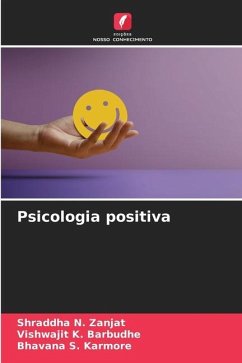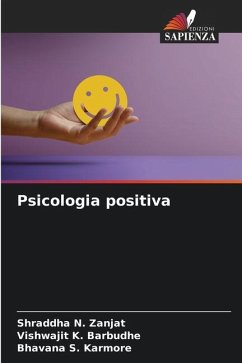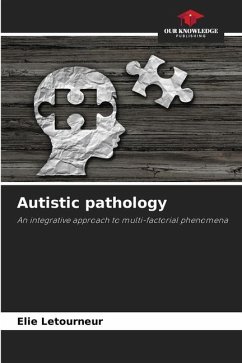
Positive Psychology
Versandkostenfrei!
Versandfertig in 6-10 Tagen
40,99 €
inkl. MwSt.

PAYBACK Punkte
20 °P sammeln!
Positive Psychology, a branch of psychology founded by Martin Seligman in the late 20th century, focuses on the scientific study of human flourishing and well-being. Its fundamental premise is to shift the traditional emphasis on pathology and dysfunction towards understanding the factors that contribute to a fulfilling and meaningful life. Researchers and practitioners in positive psychology explore topics such as optimism, resilience, strengths, gratitude, and happiness. Seligman's seminal work "Learned Optimism" paved the way for the field, emphasizing the power of positive thinking and the...
Positive Psychology, a branch of psychology founded by Martin Seligman in the late 20th century, focuses on the scientific study of human flourishing and well-being. Its fundamental premise is to shift the traditional emphasis on pathology and dysfunction towards understanding the factors that contribute to a fulfilling and meaningful life. Researchers and practitioners in positive psychology explore topics such as optimism, resilience, strengths, gratitude, and happiness. Seligman's seminal work "Learned Optimism" paved the way for the field, emphasizing the power of positive thinking and the ability to cultivate optimism. Other influential figures like Csikszentmihalyi introduced the concept of "flow," describing the immersive state in which individuals are fully engaged and find profound satisfaction. The field also delves into character strengths, mindfulness, and the cultivation of positive emotions. Through a combination of empirical research and practical interventions, positive psychology seeks to enhance individual and societal well-being, impacting areas ranging from education and healthcare to organizational development.














